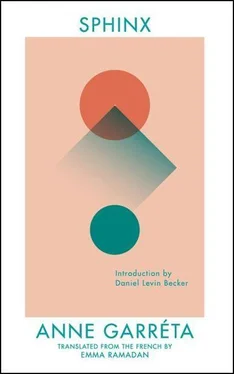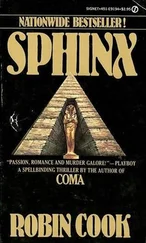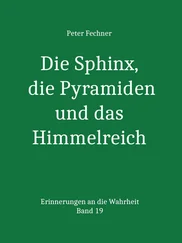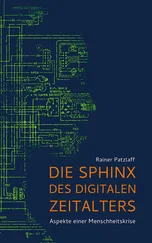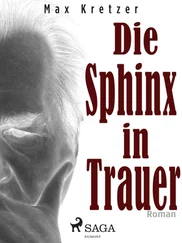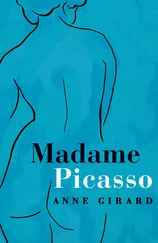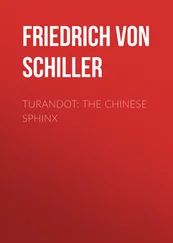Anne Garreta - Sphinx
Здесь есть возможность читать онлайн «Anne Garreta - Sphinx» весь текст электронной книги совершенно бесплатно (целиком полную версию без сокращений). В некоторых случаях можно слушать аудио, скачать через торрент в формате fb2 и присутствует краткое содержание. Год выпуска: 2015, Издательство: Deep Vellum Publishing, Жанр: Современная проза, на английском языке. Описание произведения, (предисловие) а так же отзывы посетителей доступны на портале библиотеки ЛибКат.
- Название:Sphinx
- Автор:
- Издательство:Deep Vellum Publishing
- Жанр:
- Год:2015
- ISBN:нет данных
- Рейтинг книги:3 / 5. Голосов: 1
-
Избранное:Добавить в избранное
- Отзывы:
-
Ваша оценка:
- 60
- 1
- 2
- 3
- 4
- 5
Sphinx: краткое содержание, описание и аннотация
Предлагаем к чтению аннотацию, описание, краткое содержание или предисловие (зависит от того, что написал сам автор книги «Sphinx»). Если вы не нашли необходимую информацию о книге — напишите в комментариях, мы постараемся отыскать её.
is a remarkable linguistic feat and paragon of experimental literature that has never been accomplished before or since in the strictly-gendered French language.
Anne Garréta
Pas un jour Emma Ramadan
Monospace
Sphinx — читать онлайн бесплатно полную книгу (весь текст) целиком
Ниже представлен текст книги, разбитый по страницам. Система сохранения места последней прочитанной страницы, позволяет с удобством читать онлайн бесплатно книгу «Sphinx», без необходимости каждый раз заново искать на чём Вы остановились. Поставьте закладку, и сможете в любой момент перейти на страницу, на которой закончили чтение.
Интервал:
Закладка:
A***, though drunk, was dancing divinely. A classic routine demonstrates one’s sensibility just as much as the unruly improvisations of today’s dance steps. While dancing these waltzes — for we danced many in succession — I had the impression that never until this day had I reveled in such a carefree lightness of being. There was no longer anybody but us on the dance floor; no doubt our perfect execution of the steps had intimidated all the amateurs. A*** had a naïve and clichéd fondness for the antiquated world of the aristocracy, an admiration for the bygone, the retro, the image of luxury that Hollywood associates with times past.
A***’s drunkenness, at once dissipated and concentrated by the dance, kept us moving. When the Apocryphe closed, we hurried to the Kormoran. Ruggero had a bottle of whiskey brought to my table that he insisted on offering me for the New Year, and as a thank you for the cigars I had brought him back from Germany. And so I too started to drink. A*** and I talked for a long time about everything under the sun. We were drunk, A*** more so than me. There was a warmth, a hint of complicity between us, which soothed the constant tension of our unfinished business. And this happy understanding, permitted by our drunkenness, was further reinforced by the illusory intensity of perception brought on by the alcohol. Leaning toward me and speaking with more abandon than usual, A*** suddenly murmured the following question: “And if we make love, will you still love me after?” Abruptly, I caught a glimpse of what I had given up hoping for, without ever having written it off. It was finally being offered to me, in a whisper and under the extraordinary guise of a fiction, all that we had envisioned and elaborated, that which ultimately gave meaning to all of our stratagems. A*** repeated the query, making it sound like a supplication. I leaned toward A***, not knowing how to respond to the anxiety I sensed in the question.
My only answer was to wrest A*** from the chair and to take us out of this place. Once outside and without having discussed it at all, we hailed a taxi and A*** told the driver the address. Without saying a word, we took the elevator. The fear that I had forgotten suddenly returned and took me by the heart, the fear of flesh that accompanies those first adolescent excitements, an anxiety we attempt to combat too quickly with cynicism. I thought I was going to faint, standing there at last on the threshold of what I had so passionately desired.
I staggered as A*** moved to kiss me; I didn’t know what to do except let it happen. The temporal order of events, even the simple spatial points of reference, all disappeared without my realizing it; everything is blurred in my memory. I have in my mouth, still, the taste of skin, of the sweat on that skin; against my hands, the tactile impression of skin and the shape of that flesh. In a sprawling obscurity — either I closed my eyes or my gaze was struck with a temporary blindness — some vaguely outlined visions, and, in my ear, the echo of soft rustlings, of words barely articulated.
I don’t know how to recount precisely what happened, or how to describe or even attest to what I did, what was done to me. And the effect of the alcohol has nothing to do with this eradication; it’s impossible to recapture the feeling of abandon through words. Crotches crossed and sexes mixed, I no longer knew how to distinguish anything. In this confusion we slept.
When I awoke from the incredible sleep that follows the appeasement of the flesh, I saw A***, watching me and smoking a cigarette. The memories I have of my life at that time are all of this order. Dissolved are the restless nights, the clammy visions of crowds of bodies mangled and shredded by the spurts of light that cut through shadow. Crystallized at the bottom of my memory remains the recollection of these sleeps and these wakings where one floats between the resurgence of desire and the memory of its satisfaction.
Never until then had I longed to see A*** dance on stage. When A*** danced in the Apocryphe, I didn’t have to share the pleasure I took in watching: I was allowed to imagine that the dance was dedicated entirely to me, without the crowd being there to prove me wrong. Watching this body moving uninhibited, this body that wasn’t mine in any way, I reveled in the uniqueness and the exclusivity of my gaze.
However, not long after that first night, I decided to go and watch the show put on at the Eden. From my place in the audience, I watched A*** perform one of the club’s best numbers. I can only describe it as a syncopated progression of movements, the ecstatic miming of a song written in English entitled — I learned later—“Sphinx.” I was struck by the lyrics, at least by the ones I could grasp in the moment. I came back to this song so many times, keeping it as an emblem, the enigmatic prophecy of all that ever came to pass between A*** and me. I was struck that night by certain lines, which I deciphered or guessed from watching their silent pronunciation on A***’s lips. Erratic blocks of words, fragments that resounded in me even more violently because they were incomplete, that I grasped only insofar as they seemed to articulate something of my relationship to this strange figure I had only recently succeeded in conquering.
Later I translated the exact words of the song and watched as their meaning, which I had imperfectly intuited that night, unfolded. I transcribe the essential lines here:
I can’t stand the pain
and I keep looking for all the faces I had
before the world began.
I’ve only known desire and my poor soul will burn
into eternal fire.
And I can’t even cry,
a sphinx can never cry.
I wish that I could be
a silent sphinx eternally.
I don’t want any past
only want things which cannot last.
Phony words of love
or painful truth, I’ve heard it all before.
A conversation piece,
a woman or a priest, it’s all a point of view.
The vision comes back to me instantly: A*** crossing the stage in the feline roving of the choreography, embodying an enigmatic, silent figure twisting to the extreme limit of dislocation in miraculous movements that were syncopated but not staccato. Even as this body fades away, a spectral figure remains, immobile; the stage is populated with incarnations, sudden gestures, hieratic poses set in a relentless progression. There was something cat-like or divine in this body that, moved by some sly, sensual pleasure, was embodying in nonchalant strides a languid damnation, an immemorial fatality made into movement.
When I entered the dressing room, I found A*** immobile as if in prayer or confession, legs bent, forearms fixed on a high barstool supporting A***’s entire body weight. Hands dangling, wrists slack, gaze abandoned and lost in the emptiness, then focusing on me as I entered and following me to where I sat down opposite. It was like the disdainful pose of the sphinx (or the image I had of it then), the same sharp aesthetic. I thought this to myself and, laughing, affectionately let slip, “my sphinx”—as if I had said “my love.” We remained face-to-face, our bodies as if petrified. A terror silted up in my throat; the desire I had felt welling up in me at the sight of those distant movements on the stage had been suspended. I could do nothing but adore. Those eyes, so black, fixed on me, subjected me to an unbearable torture.
The following winter we planned a trip to New York to visit A***’s family, including A***’s mother, uncles, aunts, and cousins. We thought of it as a break, an interpolated parenthesis in the delirious lifestyle caused by our jobs. We wanted a rest from the excitement — and the resulting comedown — of our nights of partying, to flee the invasive rumble of the social scene. We also wanted to repair the damage done by A***’s inability to remain faithful to me, by those passing flings that always led to remorse and then a sudden resurgence of desire and a whirlwind week of all kinds of debaucheries. We were hoping that through a month of intimacy, of living free from constraint, we could erase the hurts that a year of voracious and nocturnal passion had inflicted on us.
Читать дальшеИнтервал:
Закладка:
Похожие книги на «Sphinx»
Представляем Вашему вниманию похожие книги на «Sphinx» списком для выбора. Мы отобрали схожую по названию и смыслу литературу в надежде предоставить читателям больше вариантов отыскать новые, интересные, ещё непрочитанные произведения.
Обсуждение, отзывы о книге «Sphinx» и просто собственные мнения читателей. Оставьте ваши комментарии, напишите, что Вы думаете о произведении, его смысле или главных героях. Укажите что конкретно понравилось, а что нет, и почему Вы так считаете.
